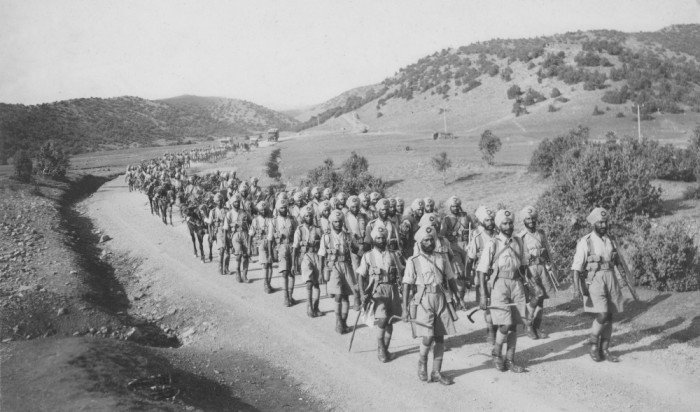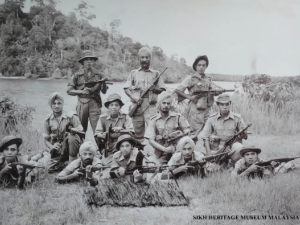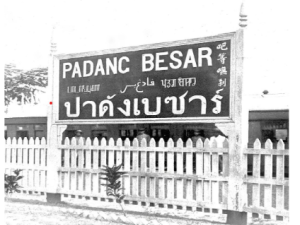Nothing finer than the grim valour ~ Battle of Krithia
Their devotion to duty - 4th June 1915

 The good Australian and New Zealand bloodshed at Gallipoli sealed and glorified forever the patriotism of the Commonwealth and the Dominion forces, but No one cared even to suggest that the dogged bravery of the immortal 14th Ferozepore Sikhs and the undaunted devotion of the indomitable Indian and Gurkha Corps might have been in vain. But their sacrifices were never made in vain. Their devotion to duty and their splendid loyalty to their orders and to their leaders make a record their nation should look upon with pride for many generations.
The good Australian and New Zealand bloodshed at Gallipoli sealed and glorified forever the patriotism of the Commonwealth and the Dominion forces, but No one cared even to suggest that the dogged bravery of the immortal 14th Ferozepore Sikhs and the undaunted devotion of the indomitable Indian and Gurkha Corps might have been in vain. But their sacrifices were never made in vain. Their devotion to duty and their splendid loyalty to their orders and to their leaders make a record their nation should look upon with pride for many generations.
"The immortal charge of the Sikh Battalion was of a piece with Gallipoli, but it was merely a battle fragment and its glorious record was written in blood within the scope of a comparatively few inspired minutes. In the mine-strewn Dardanelles and upon the sun-baked, blood-drenched rocky slopes of Gallipoli, death always partnered every sailor and soldier but the army and the navy as one man fought to the bitter end to make the best of a bad bargain, to tear triumph out of impossibilities. The dogged determination against overwhelming natural and artificial odds as even the pages of supreme British bravery cannot parallel".
The words quoted are from the account given by Subedar (Indian Major) Sardar Narain Singh of the 14th Sikhs, who received six bullet wounds while engaged in action in Gallipoli, from which he has recovered. He says that the vision of Guru Gobind Singh appeared before the Sikh soldiers just as the bugle sounded "March" and they brandished their bayonets. He declares that he cannot explain in words '"The spirit this hold sight infused in us. It emboldened us to march on, piercing through the abdomens of the enemy, unmindful of the havoc being wrought by the horrid machine gun. We shouted 'Sat Sri Akal' ("God is timeless 'the battle cry of the Sikhs), and chanted the Shabads (hymns) of Halla (attack) as if ours was a nuptial procession. Those among who fell wounded or dead we minded never, as the only thought before us was devotion to the Guru, who was so omnipresent in the march, and adherence to Government."
General Sir Beauchamp Duff, Commander-in-Chief,. India, has received from Sir Ian Hamilton a stirring description of the valour of the 14th Ferozepore) Sikh Infantry in the attack on the Turkish positions in Gallipoli on June 4 and 5. "In the highest sense of the word," Sir Ian wrote,
 "extreme gallantry has been shown by this fine battalion." It went into action with a strength of 15 British officers, 14 Indian officers, and 514 rank and file.
"extreme gallantry has been shown by this fine battalion." It went into action with a strength of 15 British officers, 14 Indian officers, and 514 rank and file.
The remnant of unwounded next morning was three British and three Indian officers and 134 rank and-file. In spite of these tremendous losses there had not been a sign of wavering. "Not an inch of ground was given up and. not a straggler came back." When the main attack on the enemy's trenches failed two companies would not retire but held on to the edge of a ravine, losing all their British officers and 45 per cent, of their number. Sir Ian Hamilton says: "The defence of the point gained in the ravine, with an enemy entrenched on both sides above it, speaks for itself, and is a very fine example of the way the Sikh bears himself as the stubborn fighting man." The Lancashire Fusiliers and the Worcesters, the General says, were full of admiration of the gallantry of their Indian comrades, and speaking for himself he says in conclusion :- "The history of the Sikhs affords many instances of their value as soldiers, but it may safely be asserted that nothing finer than the grim valour and steady discipline displayed by them on June 4 has ever been done by soldiers of the Khalsa."
Throughout all the subsequent tragic episodes of the Gallipoli campaign, the glowing triumph of the Battle of the Krithia still shone with a light which was never dimmed. The memory of its glory remained a powerful influence when, months afterwards, men began to ask whether the attack upon the Krithia could ever be carried to a successful conclusion.
Photos courtesy of~ Oxford University Library.
Harchand Singh Bedi - Malaysia
[email protected]





